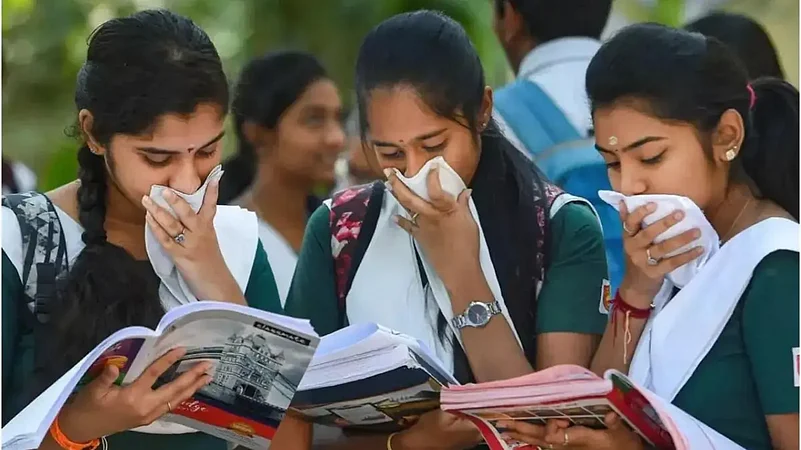The University Grants Commission, which regulates higher education in India, has introduced the Common University Entrance Test (CUET) for admission to 45 central universities in India for undergraduate courses in arts, science and commerce.
As of now, every central university has its own admission criteria and process. However, from the coming academic session, these universities will have to admit students on the basis of their marks in CUET.
National Testing Agency (NTA), which will conduct CUET, has issued a public notice with the date of applications, examination structure and schedule among other details. The UGC has also requested other private colleges, state universities and deemed-to-be universities to admit students on the basis of their CUET marks.
Advertisement
The CUET seems to be an initiative to implement the concept of ‘One Nation, One Examination’ under which a single examination will decide the admission process for undergraduate admission across the country.
A close source in the Ministry of Education said, “Initially, it is being implemented for only 45 central universities but later on other universities will also be asked to join it."
The government has already implemented a similar examination system - National Entrance cum Eligibility Test (NEET) - in medical education in India after a Supreme Court order mandated it in 2017.
Candidates aspiring to become doctors appear in NEET which NTA conducts every year in May. This test provides an All India Ranking of all the candidates on the basis of their percentile score.
Advertisement
After the announcement of the NEET results, common counselling is held in each state where students choose colleges based on their marks and rankings.
In the past couple of years, a majority of states have imposed domicile criteria for admissions in their states and this has undermined the ranking system. Hence, it has been commonly witnessed that a candidate with a higher ranking doesn’t get a seat whereas a low-ranked candidate gets preference in admission due to domicile criteria.
“My daughter couldn’t get a seat in any college in Delhi whereas many low-ranked candidates got admitted in medical colleges in Punjab because the state has imposed domicile criteria,” a father whose daughter was born in Delhi, said.
Not only domicile criteria even money power has also frustrated the ranking system based on merit. Since fees in private colleges are quite high, instead of merit, the admission criteria are candidates’ ability to pay huge fees.
Many candidates have to leave seats in private colleges because they cannot afford to pay Rs 80 lakh to Rs 90 lakh and these seats go to comparatively low-ranked candidates who have the ability to pay.
Besides, candidates have to apply separately in those states which don’t have any domicile criteria and each state has its own norms regarding security deposits and counselling fees. For instance, the Uttar Pradesh government has made it mandatory for every candidate to make Rs 2 lakh as a refundable deposit to participate in counselling.
Advertisement
“All these complications have defeated the whole purpose of one nation, one examination and one merit in medical education. One national-level counselling might be a way out but then that will lead to several other complications,” a senior doctor, associated with the Union Health Ministry said.
He added, “States will oppose the centralised counselling because local and regional talents might be outshone by the candidates from other states. Why will state governments make investments in medical education when candidates from other states will come to study there?”
A section of legal experts and educationists feel that the concept of one nation one examination is against the concept of the federal structure of the nation and it encroaches upon the rights of the states. They say that education is on the concurrent list and unless states give their consent to be a part of the system, they cannot be forced for it.
Advertisement
“Asymmetrical educational standards across the country is a result of shared responsibility entrusted under the constitution. 'Education' in list III of the seventh schedule encompasses the varied socio-economic and cultural aspirations of the people of different regions. Without addressing the differentiation, it would be bereft of the ground reality and seriously compromise the merit quotient of the candidates,” Uday Shankar, Professor of Hidayatullah National Law University, Raipur said.
“The idea of one nation one test needs to be backed by robust technology in order to ensure the same level playing field to the candidate,” he added. According to Shankar, robust technology means AI-based technology to enable the candidates to overcome the language barrier.
Advertisement
Dr G. Viswanathan, a well-known educationist and the founder-chancellor of VIT University advocates the participation of all stakeholders before CUET gets extended to all universities.
“As of now, it is only for central universities but if it is going to be extended to other universities across the country, my view would be that the union government should hold a meeting with all the education ministers of the state and take their views because state governments are going to be the implementing authorities,” Dr Viswanathan said.
Prof AS Brar, former VC of Guru Nanak Dev University says that the way education boards are competitive to give inflated marks to students, a common test does look like the need of the hour but I am not in favour of one test for the whole country.
Advertisement
“We may divide the whole country into four to five zones and then hold a separate test for each zone. One test is unfair as candidates appearing for these exams will come from diverse educational backgrounds,” Prof Brar said.




















